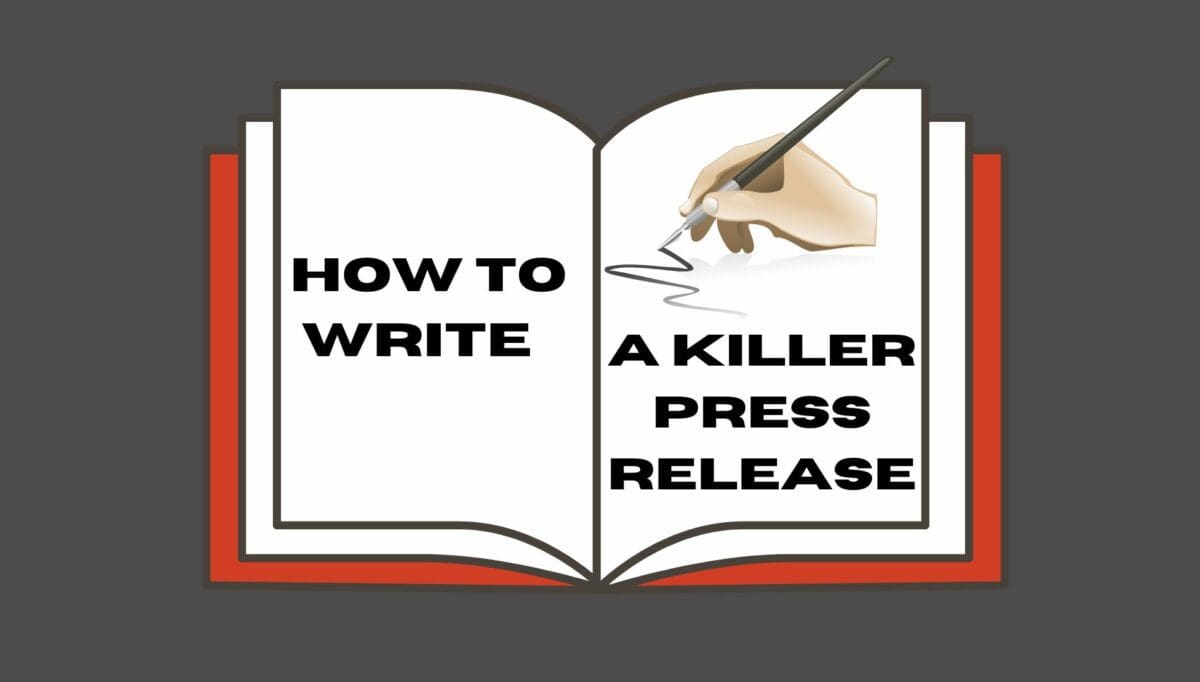So you’re wondering how to become a filmmaker? Or maybe you’re just intrigued by the idea of it. Often, wanting to become a filmmaker isn’t always the magical lightbulb moment that so many stories of success make it out to be. Instead, it begins with a passion. Which becomes a need to tell great stories.
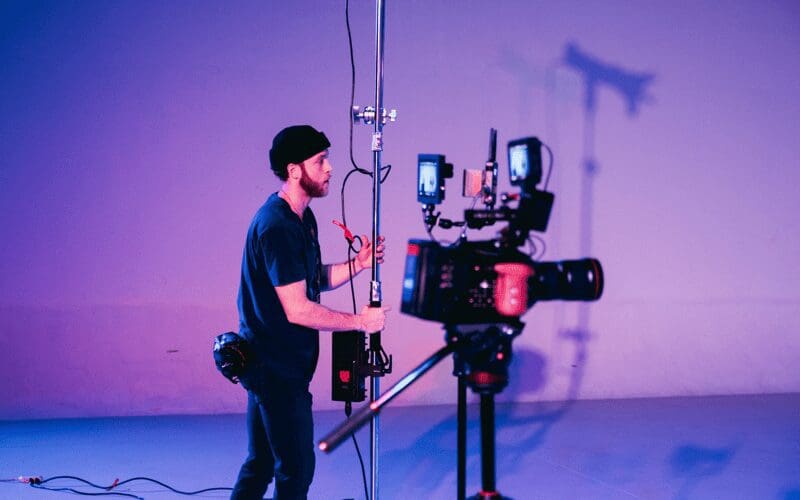
Today, we will be discussing two of the most common routes to becoming a filmmaker. Both with four easy steps to becoming successful in the film industry.
This career isn’t something that happens overnight. Hard work and determination are needed to find prosperity. As is clear in this guide and the many tales of ascendancy to greatness. So to get there in time, it might be time right now to start on your path of finding out how to become a professional filmmaker.
Let’s get started with everything you need to know!
What Is A Filmmaker?
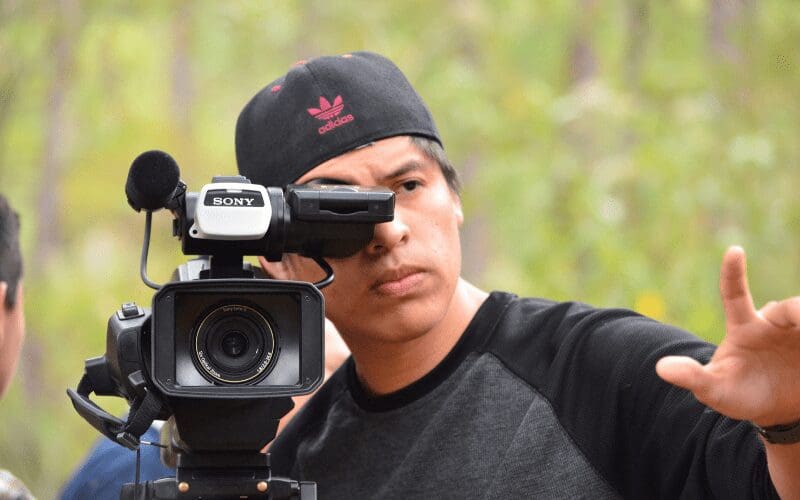
Typically, a filmmaker is thought of as an auteur-style director who writes, produces, and directs a film. Much in the model of Quentin Tarantino or Martin Scorsese.
However, this isn’t the case at all. And while those giants of the industry are what many filmmakers aspire to be, really, a filmmaker is anyone involved with making a film. This could be someone in the lighting department, a sound engineer, or an editor. The list goes on.
The definition of what a filmmaker is is changing too, technically, we all are. With the vast expansion of portable videography technology we have seen in the last half a century, cameras have gone from heavy, clunky, and immobile to simply an app on your phone.
Ultimately, a filmmaker is someone who tells a story with sight and sound. Anyone with a camera, and therefore, you.
How To Become A Filmmaker
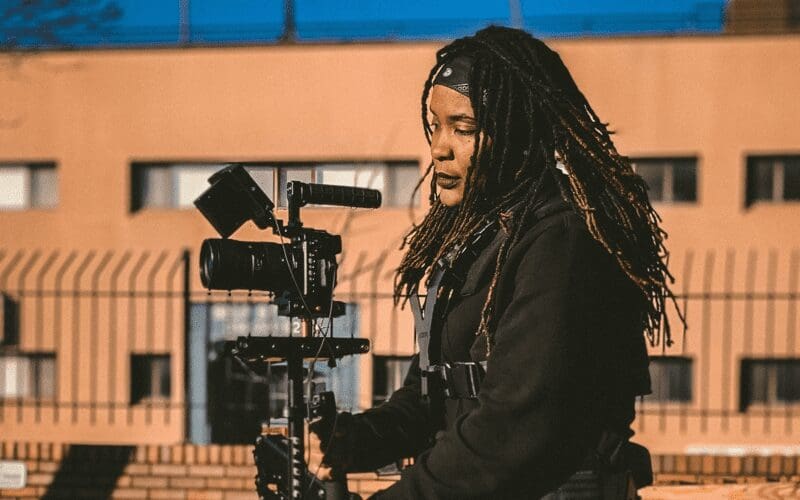
So, where do you start?
As Ridley Scott says: “There’s no excuse” for a budding filmmaker to not be getting stuck in right away.
So, before we reach the main section of our guide, let’s look at some good jumping-off points.
Make Short Films With Your Phone

A good spot to start creating would be to make 30-second short films with your phone.
Often these will look simple and basic, that’s because they are.
Making tiny films is a way of mastering the initial basics with no spending and no crew.
Read Books
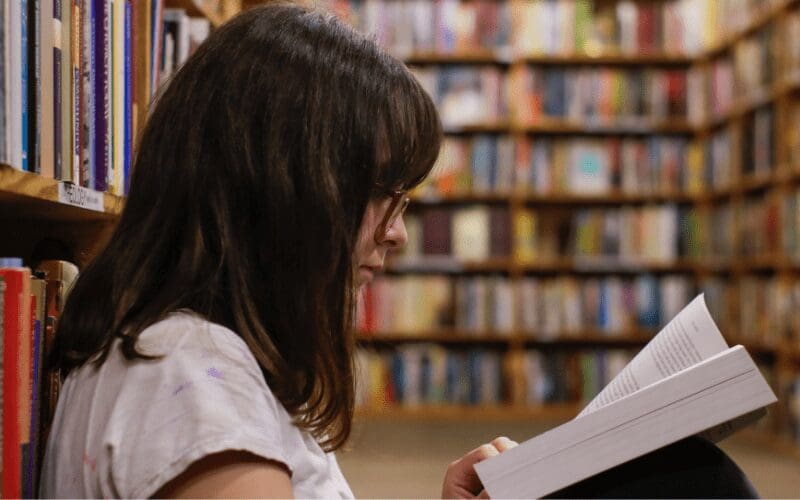
If you hoped to make a start in reading about film then there are a few good places we could point you to.
Make Your Own Movie by Little White Lies is a brilliant basic guide to first time movie makers.
For deeper theory and knowledge, “Hitchcock’s films” are a striking read and another way of looking at film.
You can find the screenplay of almost any movie online – to study how the best do it.
Check out our favorite Filmmaking Books for our recommendations!
Watch Movies!

If you’re a visual learner, then a good first rung of the ladder may be to simply watch movies.
Some good places to start might be with some of your favorite filmmaker’s favorite films.
Quentin Tarantino loves The Social Network. Describing it as “number one – because it’s the best, that’s all! It crushes all the competition.” Additionally, Guillermo Del Toro thinks that A Ghost Story is a “ Masterpiece”.
So there are a few good places to start out being a DIY filmmaker. Now let’s get into the meat of things.
We’ve set out three rough pathways to becoming a filmmaker. Working and making, both of which will be based on how to become a filmmaker in 4 easy steps of actionable advice along the journey.
How To Become A Filmmaker – Working
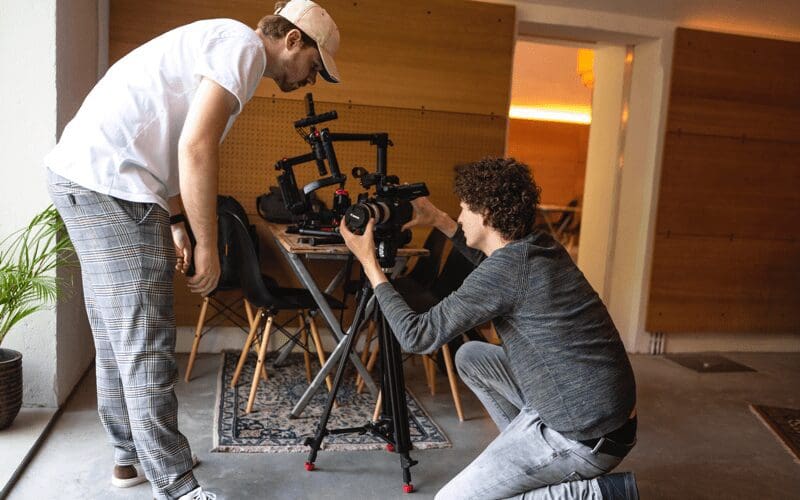
These two pathways are more graft than glamour to begin with. But the fruit of your own hard work is the sweetest, as they say.
So let’s go through four steps to success, and how to start if you want to know how to become a freelance filmmaker.
1. Finding Work

Finding a filmmaking job from nothing is difficult. But MyFirstJobInFilm.com can make that process easier, a place where companies can offer junior positions to first-time workers in film.
This site is a great resource to start from the very bottom, with often nothing more than a hard working attitude needed for some roles.
There is also the typical, tried and tested volunteer approach. Work for free, be a coffee maker, and make yourself an unofficial intern. Email every production house around you to see if they need any help.
Another method of this in the modern world may be to search #filmmaker on Instagram and shoot a Direct Message to someone there you find interesting or would like to work with. If they’re already shooting smaller short films, ask politely whether you can watch the production and while you’re there, make yourself useful!
2. Work Environment

This step is very much hand in hand with the previous one. But when you begin to work, it’s important to know what to expect on set. And how you can deal with it to move forward.
As mentioned, be ready for long and sometimes grueling days. If you’re starting as a runner or another lower-level on-set job, be prepared to shoot for 12 hours in a row. Additionally, in filmmaking be prepared to be ready at any moment you might be needed.
Sometimes after a long day, people on set can be impatient and here it’s important not to let this get to you. It’s hard to give actionable advice for these situations. But instead, here are a couple of adjectives you want people to describe you as. If you can become these things, you are absolutely on the right path.
- Pragmatic: Dealing with things sensibly and realistically in a way that is based on practical rather than theoretical considerations.
- Efficient: Achieving maximum productivity with minimum wasted effort or expense.
- Perceptive: Having or showing keenness of insight, understanding, or intuition.
3. Networking
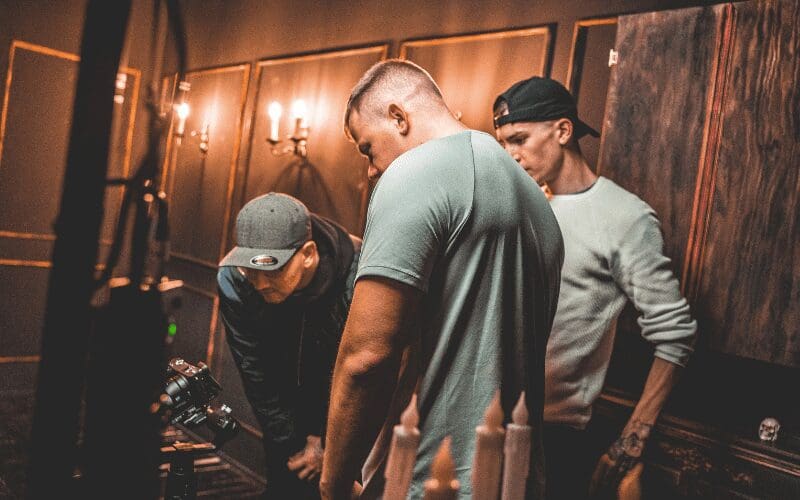
It’s vitally important when starting out working in film to network with the professionals around you.
Don’t be afraid to email people that might seem out of reach in the filmmaking industry. You never know what kind of day you might catch someone on, hopefully, it’ll be your lucky one.
A way to make colleagues open to chatting is by having them respect you first.
Make sure to always be punctual. Bring a notepad to keep track of things and to respect the confidentiality of the environment too.
Another actionable tip about networking is to look outside of your job in the film. Look online for writers’ classes such as the Sundance Co//ab Writers cafe (free to join) or search on websites like Meetup.com for writing groups in your local area.
Often it can feel daunting to join a new group or environment, but if it was easy, it wouldn’t be worth doing!
In these groups, you will also learn how to become a better filmmaker through the advice and guidance of other film professionals.
4. Rise

Your focus as a filmmaker here should be rising the ranks at work. A common misconception is that one day, the unknown runner is given a chance in the director’s chair. This is unlikely. Instead, it’s incremental steps up the ladder. Such as from runner to third assistant director, or from lighting assistant to the best boy (deputy lighting person).
It’s also important to keep sharpening your knives too. Work on your screenplays at home, so that you are always ready to take the next step.
Not only are the steps to rise the ranks incremental, but they only happen if you make yourself indispensable. So as a good runner, they have no choice but to make you more important, eventually.
Guy Ritchie was a runner on set at 15 for a year in 1995 before ever making anything. The same man who 29 years later would make Disney’s “Aladdin” – the 34th highest-grossing film of all time!
How To Become A Filmmaker – Making
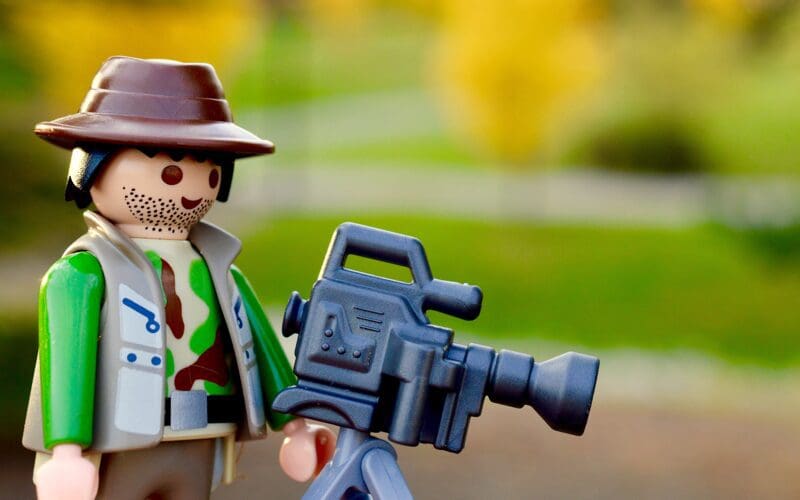
Here’s the route to go on if you want to just get hands-on straight away, and can’t quite resist getting your hands on the camera – and telling stories with it.
1. Starting Out
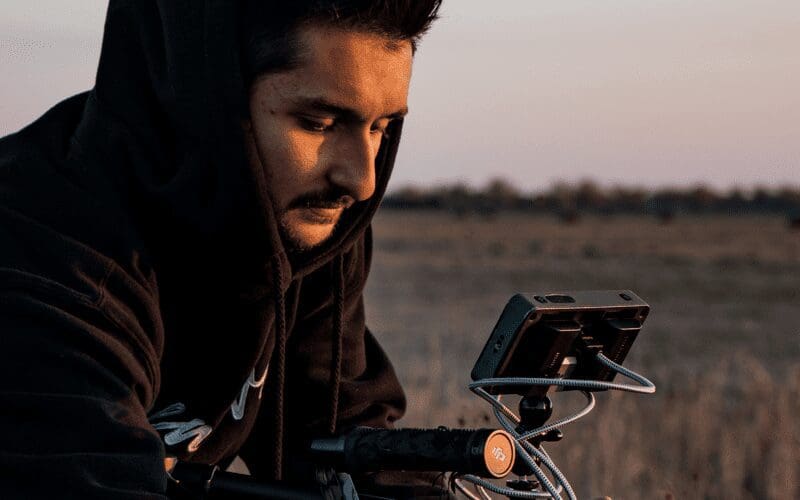
It’s exciting, in the beginning. But it’s important to channel that excitement productively, instead of letting it burn you out, Roma (2019) wasn’t shot in a day.
As a filmmaker here, it’s important to solidify your knowledge of the basics. No matter what your camera is, make sure you have a full understanding of how to use it, YouTube guides often do the trick.
It’s also important if going solo that you equip yourself with the right software. This means a good and preferably cheap editing program, check out our article on The Best Free Video Editing Software for our recommendations!
2. Zero Budget
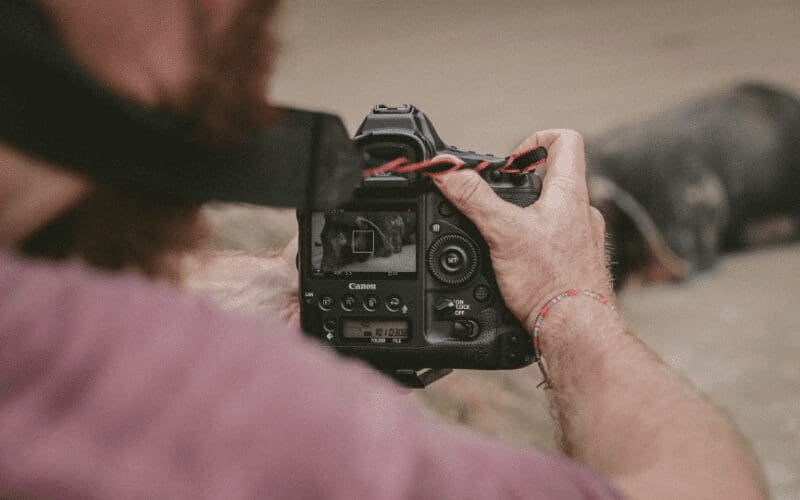
This step is all about learning from errors. Finding your screenplay lacks pace? Study online about the hero’s journey, or even better, read “Save the Cat!” by Blake Snyder.
Here, you’re bound to make mistakes shooting short films. No matter how good you are, you can always improve – especially at the start.
The important thing is to not get caught up in things out of your control, such as bad acting (probably by your friends) and poor camera quality. All of these can be fixed with time and a better budget. For now, it’s important to nail the basics of how to tell a story.
Make sure to use locations that you have access too also, live near a beach. Use it! Live in the city? Even better! Write with what you know you have at your disposal. These boundaries will only help you improve in the future when you need to work on a producer’s brief.
However, if you do have a bit of money to spend, check out our article on How To Finance Movies For Independent Filmmakers.
3. Seek Criticism
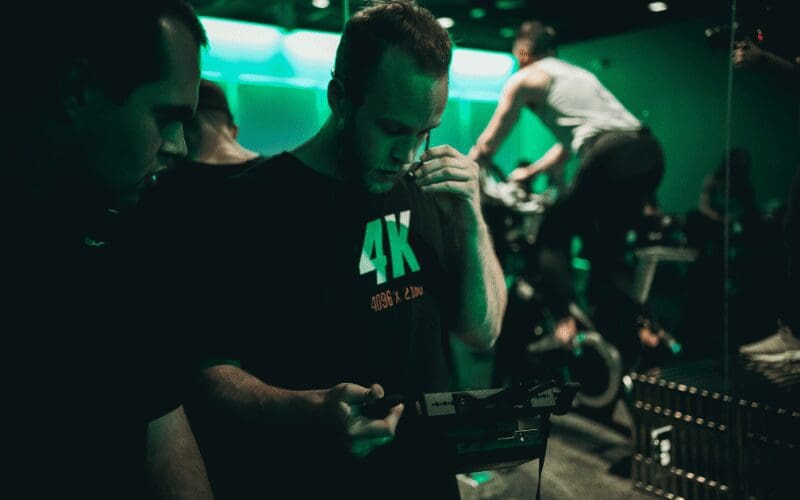
Hearing that you suck, sucks. But hearing how you suck, is an opportunity not to.
This first step is always the hardest though. To admit mistakes, and make the first stride away from zero-budget films involves a lot of that. Here, to take that step, and seek people’s opinions, working in a vacuum can be detrimental to progress.
Post your shorts online and advertise them on your social media. If you have someone in the industry who acts as a mentor to you, solicit their opinion. And if not, ask around in one of the online writer’s circles mentioned earlier for opinions. There will always be people generous enough to help you out.
Remember, if you are asking others about opinions, it’s often good to have a summary and logline, instead of plonking 120-page screenplays in their emails. For more on how to write a script, check out our Beginner’s Guide To Scriptwriting.
This might be the trickiest step of all, as it’s so easy to just imagine that people who don’t like your work just don’t get it. However, the most vital aspect of this step might just be to ask yourself, “Why don’t they get it?”.
At this stage too, don’t forget to up your production value. A good way of doing that can be investing in a decent microphone (Rode VideoMic Pro) and a good DSLR camera. This helps to make your films look more professional and ready to receive criticism in the higher echelons of the industry.
Camera wise, we would opt for the Canon EOS 2000D. Or for an older, cheaper alternative, the Canon 5D Mark III.
4. Apply Yourself (literally)
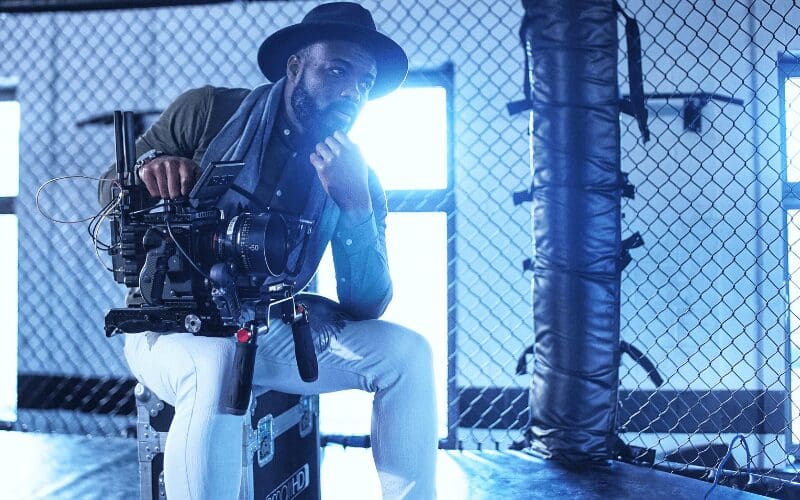
Once you’ve made movies, made mistakes, and then learned from them. It’s time to make more.
This time hopefully on a slightly larger scale. Here, scour the internet for grants. Often awarded from nationally funded organizations like BAFTA or the BFI.
If you’re in the US the Adobe Design Achievement Awards or the Film Independent Project Involve are both worth applying for. Especially if you have a narrative film you want to make.
If you’re a writer trying to learn how to become a filmmaker at this stage, it might also be worth looking for management. But it’s important to partner up with a manager who will respect your workload and offer you the right opportunities. Instead of treating you as just another naive up-and-comer.
After this, if you do get a grant, not normally on your first try, the next step is festivals. Unless you’ve made the next classic (which you might very well have) it might be worth looking at getting on the program at smaller, more local film festivals.
If it’s a short that you have made, 5-10 minute shorts often find popular use as time fillers between features in the schedule. This might very well be how you work your way into your very first festival and the rest is history (well… it will be once you make it happen!)
Things work out serendipitously and not being recognized at a festival the first few times can be a difficult moment for many. It can feel like you’re back to square one.
However, it’s vital to realize the most important thing about this guide – and filmmaking paths in general, which we will conclude on.
How To Become A Filmmaker – Education

Lastly, if academia has always been your strong suit, but becoming a movie-maker keeps calling out at you, then film school might be the place to go.
Check out our article on Film Schools which will outline the pros and cons more in-depth and review some film school options!
Many extraordinary online film classes are available to all. Your location is irrelevant because craftsmanship knows no borders, and more importantly, some online film courses are free of charge! For more information, check out our article on Online Filmmaking Courses, Free And Paid.
How To Become A Filmmaker: Our Conclusion
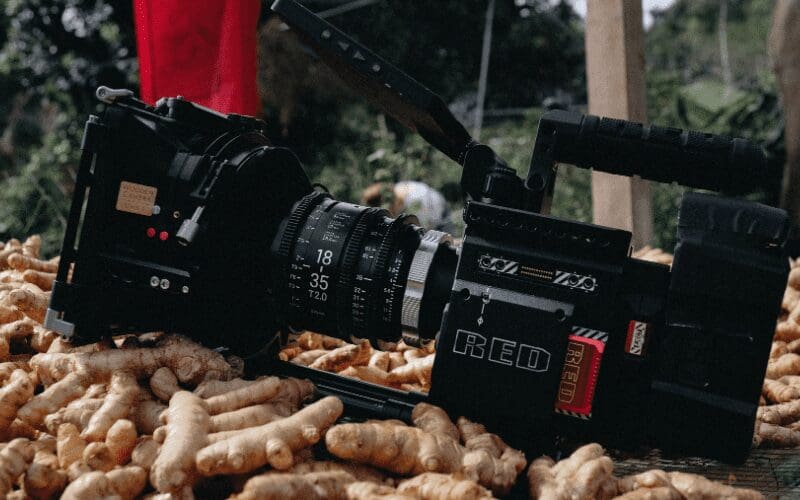
You may think, how hard is it to become a filmmaker? The truth is, becoming a filmmaker doesn’t happen overnight. Just like the process of making a film itself, it can be long, difficult, arduous, and filled with unforeseen circumstances. But with perseverance, you succeed to make a brilliant picture, no matter what role you play.
In your journey to becoming a filmmaker, you’re the lead character, and what most don’t realize is, you’re also the director. You get to write your journey however you want. Sure you might get some unwelcome studio notes, but it’s about how you navigate these difficulties to succeed in the thing you love.
All of the pathways are just guidelines, and ultimately, you can mix and match between any of them if it works for you. Studying and working at the same time is perfect!
Point to Remember: How To Become A Filmmaker
It’s important not to be rigid in your progress and instead, be adaptable and keep making.
We will close on one piece of advice from the late, great Stanley Kubrick: “The best education in film is to make one”.
Don’t forget to share this article with your fellow filmmakers and give us a tag on your socials @musicgateway! We would love to hear what you think about this guide, so feel free to share your thoughts in the comment section below!

